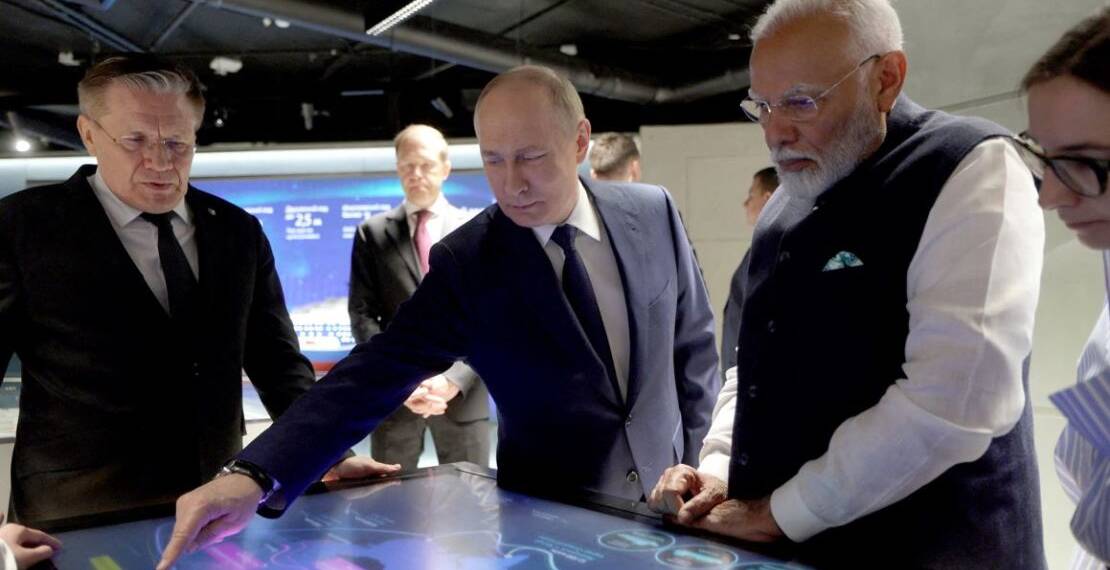At the recent Moscow Conference on International Security, Igor Kostyukov, chief of the Russian Defense Ministry’s Main Intelligence Department, accused the U.S. of “blackmailing” Asia-Pacific nations into abandoning arms deals with Russia. He claimed that Washington is using the threat of sanctions to stall key contracts, including:
S‑400 air defense systems to India, Sukhoi Su‑35 fighters and Mi‑17 helicopters to Indonesia, Mi‑171 helicopters to the Philippines and planned military-technical cooperation with Vietnam.
Russia has accused the United States of deliberately sabotaging its international arms deals, particularly with key Asian partners like India, Indonesia, and Vietnam. Lieutenant General Igor Kostyukov, head of Russia’s military intelligence agency (GRU), claimed that Washington is using coercive tactics—including economic pressure and the threat of sanctions—to dissuade countries from procuring Russian defense systems.
Kostyukov framed these actions as part of a broader push by the U.S. to inhibit Russian arms exports and promote its own defense industry—a strategy he characterized as contravening principles of fair international trade. Russia argues that such interference damages its defense sector at a time when it is already facing economic and production challenges.
“Well, he (Russian President Vladimir Putin) lost an oil client, so to speak, which is India, which was doing about 40 per cent of the oil. China, as you know, is doing a lot…And if I did what’s called a secondary sanction, or a secondary tariff, it would be very devastating from their standpoint. If I have to do it, I’ll do it. Maybe I won’t have to do it,” Trump had said in an interview with Fox News aboard Air Force One en route to Alaska for the meeting with Putin.
US India clash continues
Although Moscow alleges pressure on India over its S‑400 purchase, New Delhi has not explicitly confirmed receiving such a push from Washington. In fact, India continues to press for the delivery of the system. Russia, for its part, has assured that the final two S‑400 batteries will be delivered by 2027.
Recent reports indicate that India has now paused several planned purchases of American-made weapons, including Javelin anti-tank missiles, Stryker armored vehicles, and P-8I reconnaissance aircraft. The move follows a steep rise in U.S. tariffs on Indian goods under the Trump administration, suggesting growing friction in bilateral ties.
Meanwhile, recent developments in U.S.–India relations signal growing complexity. New tariffs imposed by the Trump administration—levying a total of 50% on Indian goods have derailed ties to a huge extent. India has not reacted well to these pressures and has instead chosen to deepen its ties with Moscow.
Russia’s arms exports have been severely impacted in recent years. According to SIPRI, exports plummeted by approximately 53% from the 2014–2018 period to 2019–2023. More dramatically, they dropped from $14.6 billion in 2021 to under $1 billion in 2024—a staggering 92% decline—driven by international sanctions on Russia for the Ukraine war and buyer hesitancy due to various threats by the West.
India on the other hand remains a pivotal customer in this landscape, having accounted for over one-third of Russian arms exports between 2019 and 2024. The two have an intrinsic and historic relationship that has not been seen favorably in the West and this seems another attempt to hamper those ties.
Modi Putin come together
Post Putin’s visit to Alaska to meet Trump, the Russian President shared the details with the Indian Prime Minister Narendra Modi. “Vladimir Putin had a telephone conversation with Prime Minister of India Narendra Modi. The Russian President briefed Prime Minister Modi on the key outcomes of the Russia-US summit in Alaska,” the Kremlin said in a statement. “The Prime Minister thanked President Putin for the update. The leaders discussed prospects of a long-term resolution to the Ukrainian crisis and agreed to maintain dialogue on the matter, as well as on other pressing international issues.”
The phone call between Modi and Putin — their second conversation in 10 days — is significant in the backdrop of the tension in ties with the US after Trump doubled the tariff on India over its purchase of Russian oil. On August 8, Modi and Putin held a phone conversation during which they discussed “the latest developments on Ukraine” and reaffirmed their “commitment to further deepen the India-Russia Special and Privileged Strategic Partnership”.
India’s external affairs minister S Jaishankar is scheduled to travel to Moscow to meet his counterpart, Russian Foreign Minister Sergey Lavrov, on August 21. Earlier this month, National Security Advisor of India, Ajit Doval also travelled to Moscow and met Putin.
Modi and Putin are expected to meet on the sidelines of the Shanghai Cooperation Organisation (SCO) leaders’ summit in China’s Tianjin on August 31-September 1, where the two leaders will have extensive meetings with Chinese President Xi Jinping as well. The ties between the trio are expected to deepen further in the coming year with the China Russia India alliance fast taking shape as the continuous westenr pressure is pushing the rise of the BRICS lobby.








